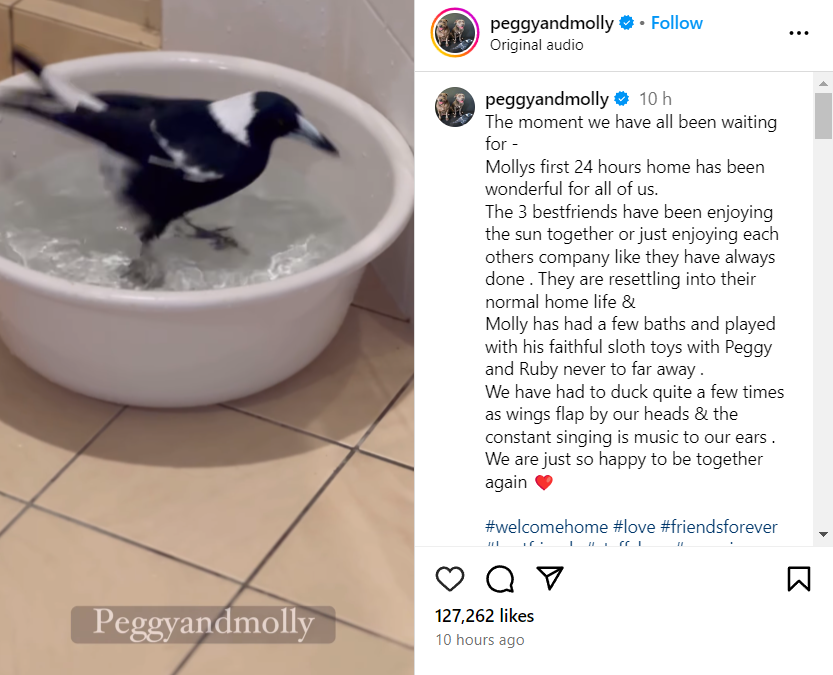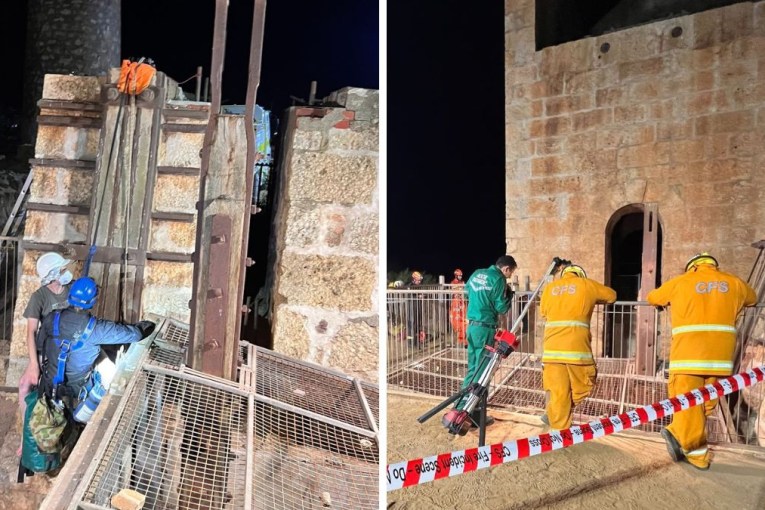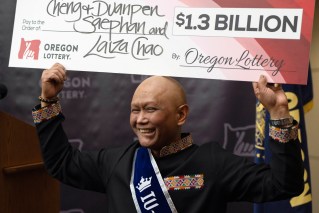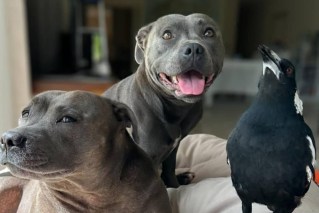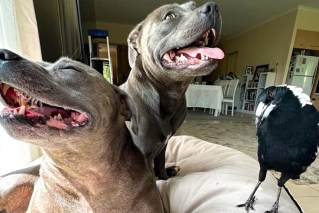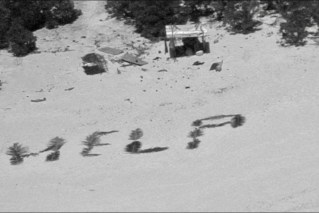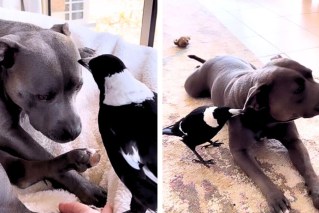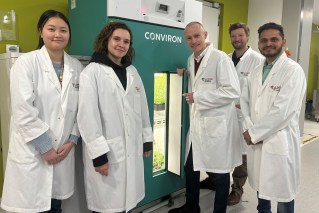Molly’s ‘wonderful’ first 24 hours home captured

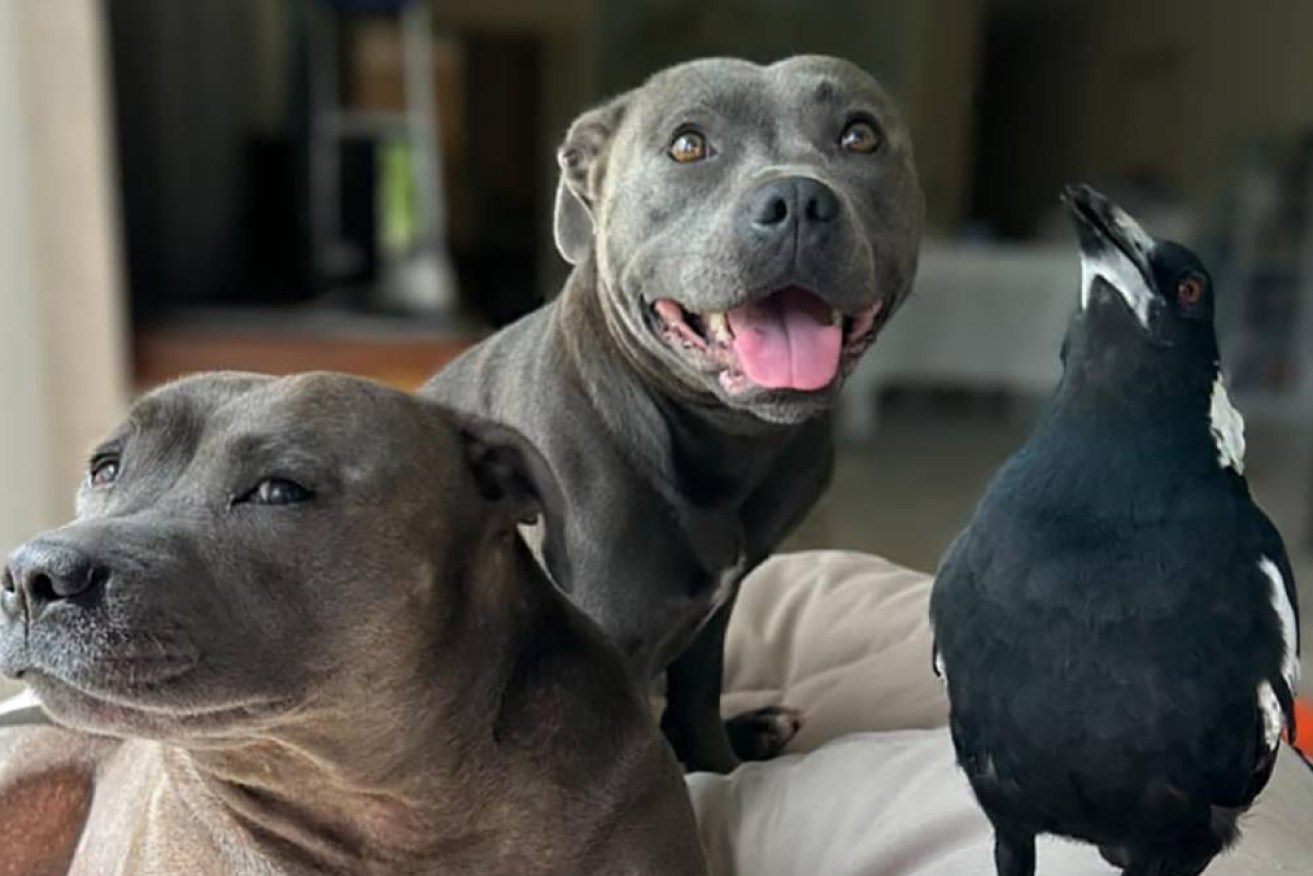
Molly the magpie's first 24 hours back home imortalized. Photo: AAP
The first 24 hours of “the moment we have all been waiting for” has been captured as Australia’s most famous magpie was reunited with his unlikely canine and human best friends, after weeks in the custody of Queensland wildlife officers.
Late on Tuesday, Molly the magpie was finally returned to the Gold Coast home of Juliette Wells and Reece Mortensen, who say Molly and his canine besties have been enjoying each other’s company and the sun.
The return came only after the couple had agreed to strict conditions – including that they make no ongoing commercial gain from the bird or its image.
An extensive social media campaign erupted when Wells and Mortensen surrendered him to DESI in March, following complaints they did not have the required permit to keep a native animal.
The couple rescued the baby bird when he fell from a nest in 2020. He went on to form a close relationship with Peggy and Ruby.
The unlikely trio also have a massive social media following, which swung in behind a weeks-long campaign to have Molly returned to his Gold Coast home. Even Queensland Premier Steven Miles weighed in, saying there should be a way for Molly to return.
On Monday, DESI confirmed the next step.
“DESI has approved a specialised licence and today returned Molly the magpie to a couple who took it in as a nestling in 2020,” it said.
“Independent expert veterinary advice has shown that Molly, who was surrendered to the department on March 1, is highly habituated and may have developmental issues, meaning it can never be rehabilitated or returned to the wild.”
In addition to no commercial gains, Wells and Mortensen have agreed to have wildlife carer training and to liaise with DESI to ensure Molly is receiving adequate care and enrichment.
“These conditions are standard for all specialised licences held by wildlife carers in Queensland and ensure the best outcome for the bird’s ongoing health and wellbeing,” DESI said.
“DESI has also required the family undertake an advocacy and public education role … to encourage people to appropriately care for native wildlife and acknowledging the specialist skills required to care for and rehabilitate wildlife.”
-with AAP
